They left Russia for good, but are not ready to give up their national identity. Meet the Russians trying to find some form of inner peace while their country is waging a bloody war that the whole world around them is condemning.
“I took this war as a personal tragedy”
Every Saturday you can meet Petr Kuzmin, a Russian-Australian Software Delivery Manager, on the Princes Bridge in Melbourne.
Regardless of the weather, even on the most dank and rainy days, he stands there with his posters against the war.
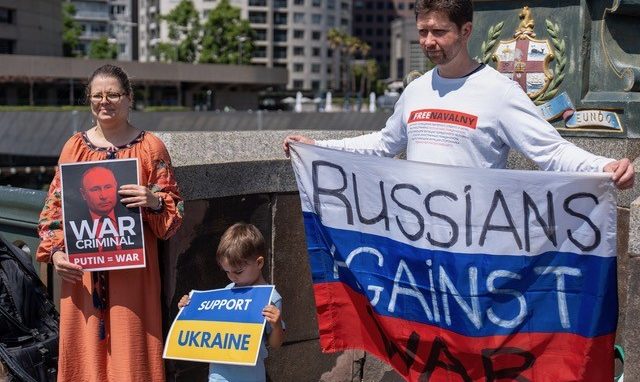
Kuzmin says that in the first three months of the Russian invasion of Ukraine he would go there almost every day, because it seemed to him that the war would be over very soon.
“I thought that as Putin’s troops started to lose, more and more people would come and join me here,” Kuzmin says. “Most evenings I stood there alone, in the dark. I was spending 20-25 hours a week standing there and it started to take a toll on my family. Therefore, I decided to go out once a week, and I have been doing this for more than a year.”
Petr left Russia back in 1999, first to study in the United States, then, in 2006, to permanently move to Australia. However, he says that he never lost his emotional connection with Russia.
“I had been following politics in Russia, but then I started my own political activism journey when the whole story with Alexei Navalny [a Russian opposition figure who is now a political prisoner] unfolded.
“We founded an Association of Russian activists, Svoboda Alliance AU&NZ, we held rallies in support of Russian political prisoners and against the closure of the human rights organisation Memorial. But at that time I still didn’t believe that Putin would start a real war.”
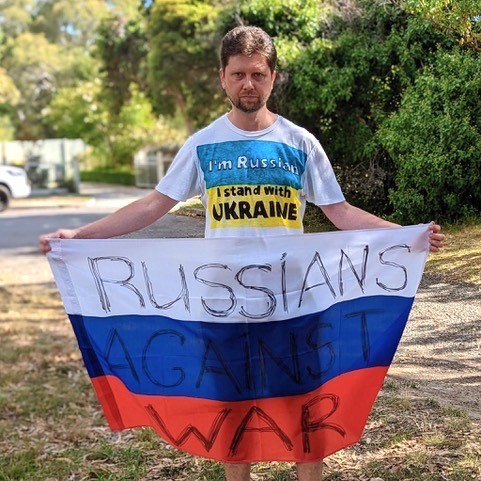
Three days before the start of Russia’s military invasion of Ukraine – which commenced on February 24, 2022 – Kuzmin spoke at a rally of the Ukrainian community in Melbourne, still not fully believing what was about to unfold.
He says that in the first days and weeks of the war, he was heavily weighed down by the feelings of guilt and responsibility.
“I took this war as a personal tragedy. I had a very strong desire to go to Russia and fight the regime there.”
“I understood all the risks of being arrested, but I was ready to sacrifice everything, my family, the opportunity to raise my daughters, because it all felt so acute.”
Only the start of general mobilisation in Russia stopped Kuzmin from going there, as he would have likely been enlisted and forced to take part in the invasion. He decided to do everything possible to help to overthrow Putin’s regime from here.
“I know that some Russians were so horrified by this war that they decided to renounce Russia and the Russian language,” says Kuzmin.
“It had the exact opposite effect on me, there was a feeling that I would never give up on Russia and I would carry this cross for as long as necessary, and fight even more fiercely.”
He says that he continues to keep his faith in the beautiful Russia of the future.
“Please don’t give up on your compatriots and on Russia. A lot of countries went through very tough tests and, ultimately, how we deal with this test will define us as people. If we manage to overcome these difficulties, that will give us a lot of strength. And I definitely believe in the possibility of a beautiful Russia of the future,” Kuzmin says.
“They stole my Motherland”
Ilya Fomin is another member of the Svoboda Alliance. A Postdoctoral Research Fellow at Macquarie University, Ilya doesn’t have Petr’s same hopes for a happy future for Russia. Instead, he says he’s focused on preventing something similar from happening in Australia, his new home country.
“Before moving to Australia [in 2018], I was an active member of the opposition in Russia and I took part in many protests; I was even detained for it,” Fomin says.
“I know very well what’s going on there, and I definitely don’t want it here. I know this danger all too well.”
Fomin was one of the promoters of a ban on the display of Nazi symbols in New South Wales. He is now working to ban the deliberate display of the symbol of Putin’s war – “Z”.
But his main activity is aimed at helping Ukraine. He volunteers for numerous charitable organisations and at the beginning of this year he travelled to Ukraine, accompanying a humanitarian convoy.
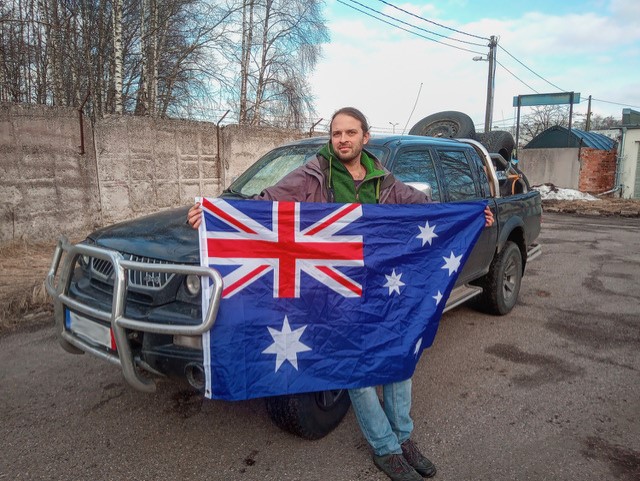
When asked about the collective responsibility of Russians for the war, Fomin says he doesn’t feel any personal guilt.
“I didn’t choose where to be born, and I left Russia when I had the first real possibility,” Fomin says.
“I have no sympathy for those Russians who silently accept what is happening while their neighbours are being killed. Russian men go to war following orders without the slightest resistance, they essentially go to the slaughter. I saw a video from the slaughterhouses: a cow resists more than them. I can sympathise only with those who fight for themselves.”
Fomin compares the probability of his return to Russia with the probability of “flying on a starship to Alpha Centauri”. He says he will never forgive the Russian government for having his homeland stolen from him.
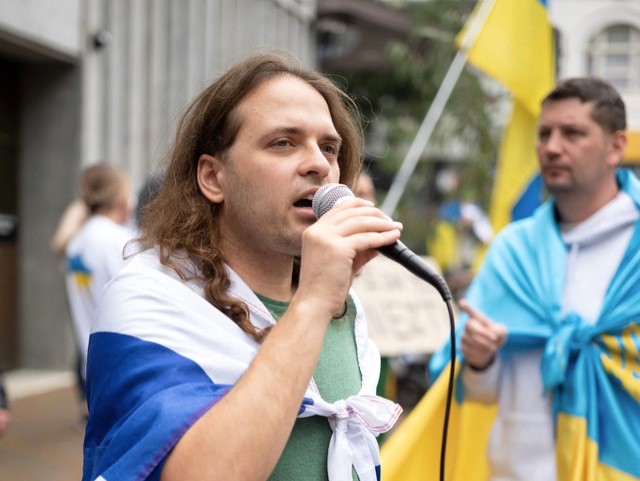
“There is a feeling that these people [the Russian government] stole my Motherland, stole that village where I spent my childhood, where I won’t be able to go to for the foreseeable future,” says Fomin.
“My body is here, while my music continues to live there”
21-year-old musician Ramazan Rakhmetov [stage name R.A.SVET] shares similar feelings about a stolen homeland. He says that for him Russia is not the government but “the villages, grandmothers, his children’s toys” .
He came to Australia last year because of the outbreak of the war.
“My family was moving to Australia, and I didn’t want to go with them at first,” Rakhmetov says.
“I was 20 years old and my real musical career had just begun. I held big concerts in Moscow, and my songs started becoming popular. All my friends were there, as well as the girl I was in love with.”
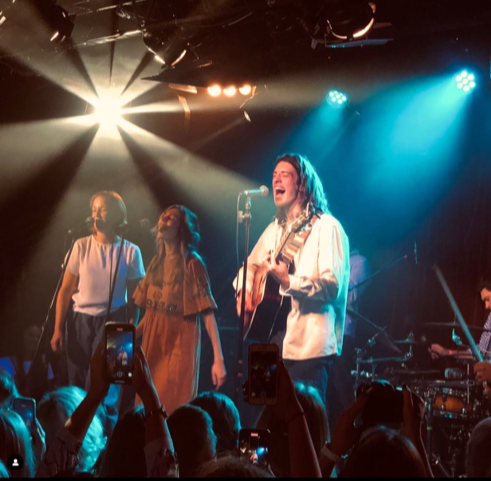
The day after the start of the war, Rakhmetov posted his anti-war song on Instagram. He says that he understood all the risks, but couldn’t do otherwise.
“Fate seemed to just push me out of Russia, because I definitely wouldn’t be safe there. For example, I had to perform at a big festival that I dreamed about. But I would have said something against the war from the stage, not only putting myself in danger, but also the organisers of the festival.”
In Australia, R.A.SVET continues to sing his songs calling for peace, even if it’s only for 30 people instead of the large venues he was used to. But his songs continue to be played in Russia.
“Friends send me videos from the streets of Moscow, where I recently sang myself, and where now the other guys are standing and singing my songs. It feels like my body is here, while my music continues to live there and maybe supports someone during these dark times.
“I sang in Turkey, in Australia, in Bali. And in the crowd there were always Russians, Ukrainians, Belarusians, Kazakhs – all the same, just living people who were taken out of their difficult reality, away from the terrible news, for a couple of hours. They cried, they laughed, and sang together.
“And even if I want to give up every day and say: ‘Why to sing when people in Ukraine are dying’, then I see those people around me who are smiling, singing, coming to me and thanking me; and I feel that this is my microscopic contribution to the movement for peace, and that it is all that really matters.”
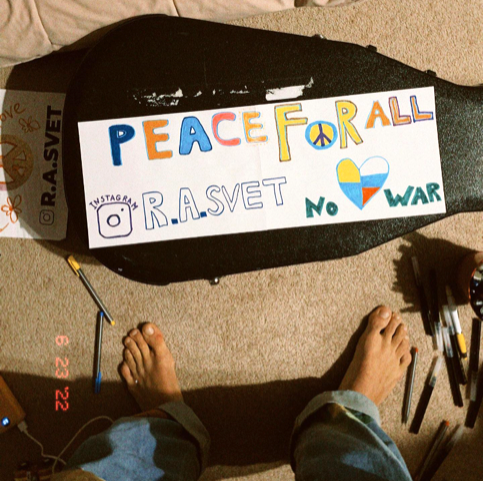
Do you have an interesting story you want to share? Email us: Lanaau1306@gmail.com

